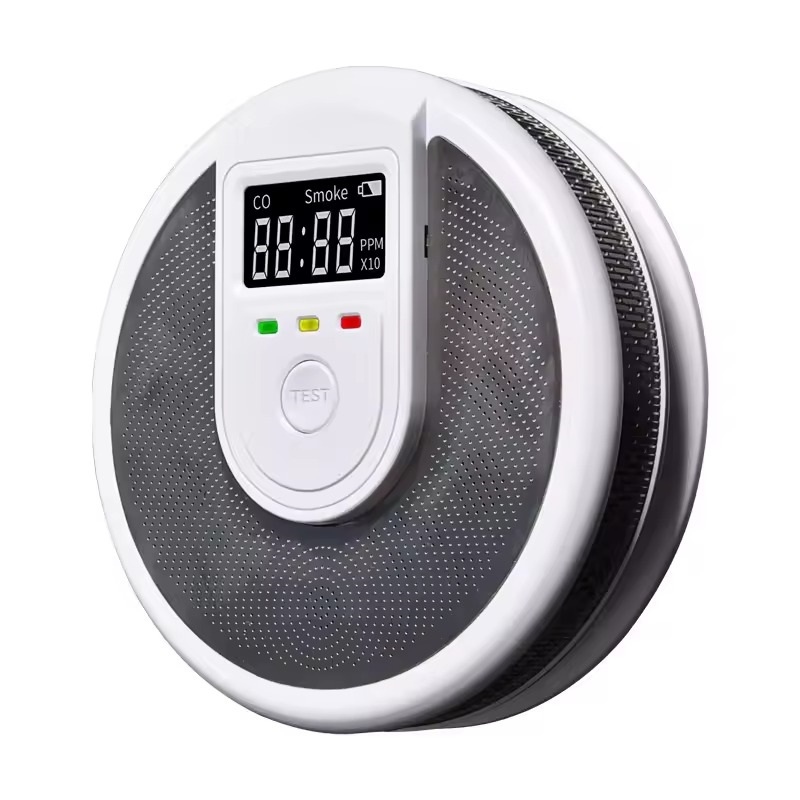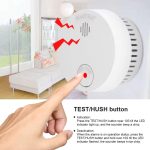How Smoke Alarms Work
Understanding why a smoke alarm might randomly go off first requires a grasp of how these devices operate. Smoke alarms detect the presence of smoke particles in the air. They typically work in two ways: through ionization or photoelectric detection.
Ionization Smoke Detectors
Ionization smoke alarms contain a small amount of radioactive material. This material creates an ionization chamber, which is an air-filled space between two electrodes. The radioactive particles cause the air molecules in the chamber to ionize and create a current between the electrodes. When smoke enters the chamber, it disrupts this current, triggering the alarm.
Photoelectric Smoke Detectors
Photoelectric smoke alarms use a light source, a light beam colliding with a sensor. In a smoke-free environment, the light beam passes in a straight line, not touching the sensor. But when smoke particles are present, they scatter the light, directing some of it towards the sensor, which then sets off the alarm.
Both types of detectors are effective, yet they react differently depending on the type of fire. Understanding these mechanisms can shed light on why your smoke alarm might randomly activate, as various factors can influence these sensitive detection processes. Factors such as dust, steam, or other aerosol particles might be mistaken for smoke by either system, resulting in a false alarm.
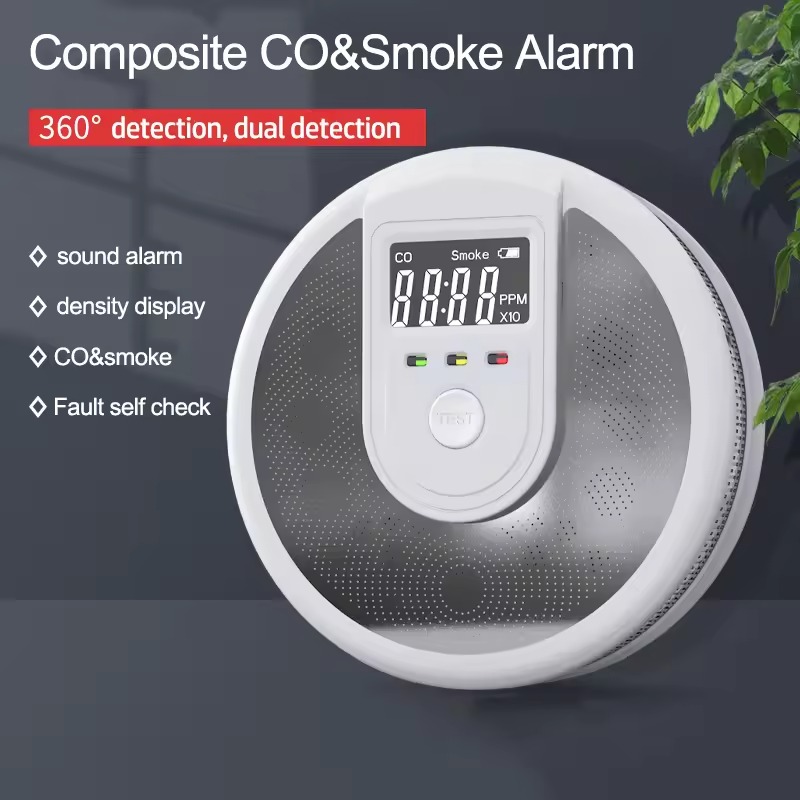
Low Battery and Faulty Power Issues
Low battery is a common cause for smoke alarm misbehavior. When the battery weakens, the alarm may chirp intermittently or go off without any smoke. This happens because the alarm tries to indicate that the battery needs replacement. You should check and replace the batteries regularly to prevent this issue.
Faulty power connections can also make smoke alarms sound erratically. If the smoke alarm is hardwired, any disruption in power supply, like fluctuations or loose connections, could trigger the alarm. Ensure that all wired connections are tight and secure. Consider having a professional inspect your system if problems persist.
Dust and Environmental Particles
Dust accumulation is a major factor in unexpected smoke alarm activation. Small dust particles can easily enter smoke detectors, particularly ionization models, and interfere with the delicate mechanisms that detect smoke. This interference can cause false alarms, as the dust mimics the presence of smoke by disrupting the electrical current or scattering the beam of light in photoelectric units.
Similarly, pollutants and environmental particles can have the same effect. Pollen, air freshener sprays, and even fine powders used in construction or crafts can set off a smoke alarm. It is important to regularly clean and maintain smoke detectors to avoid false triggers by these particulates. Gentle vacuuming around the detector and wiping the exterior with a damp cloth can prevent dust buildup.
When cleaning, avoid spraying cleaning products directly onto the smoke alarm, as the chemicals could contribute to false alerts. Instead, always spray onto a cloth and then wipe the device clean. Keeping the area around the smoke detector free from excessive dust and installing it away from air vents or fans that may carry particles will also help reduce the chance of a false alarm due to environmental particles.
Steam or High Humidity
Steam or high humidity can often cause your smoke alarm to go off unexpectedly. In environments like bathrooms or kitchens, steam from hot showers or boiling water can rise and enter the smoke detector. This steam disperses light in photoelectric sensors or affects the ionization process, similar to smoke. It prompts the alarm to trigger as it mistakenly identifies this as a fire hazard.
To prevent false alarms due to high humidity or steam, consider the placement of your smoke alarm. It is advisable not to install smoke alarms too close to bathrooms or kitchens. If relocation is not possible, look into purchasing smoke alarms that are less sensitive to humidity and steam. Also, using exhaust fans to reduce moisture accumulation in these areas can be effective. This will help minimize false triggers and ensure your smoke alarm functions properly only when there is an actual threat.
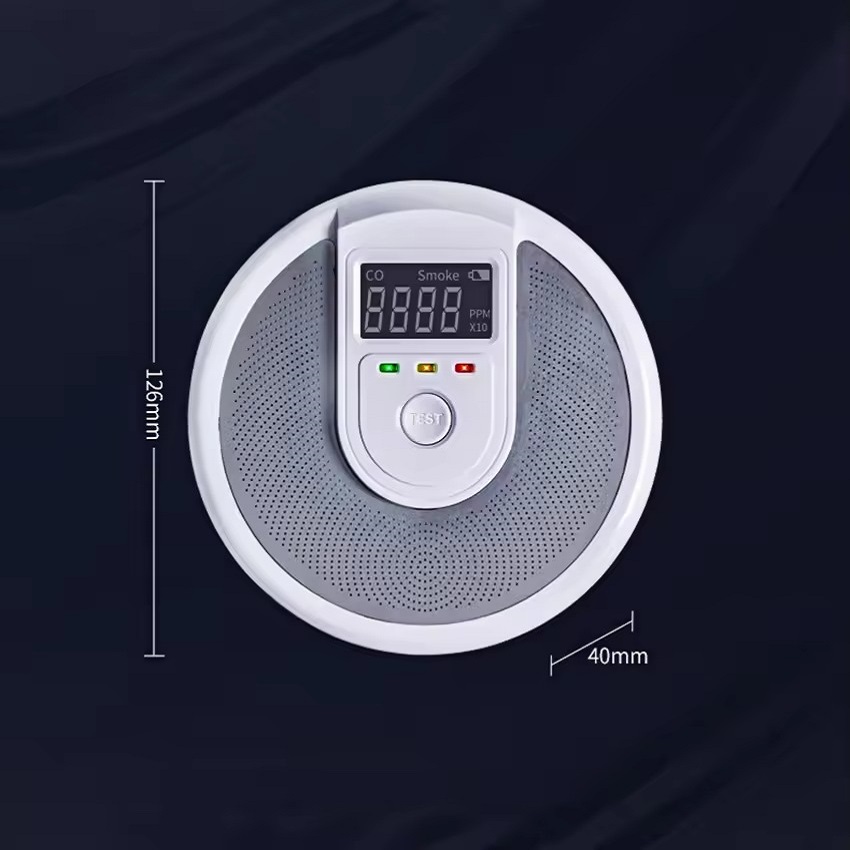
Chemical Fumes and Cooking Vapors
Chemical fumes and cooking vapors are common triggers for false smoke alarm activations. Products such as hairspray, deodorant, or even strong perfumes contain chemical aerosols. When sprayed near a smoke detector, these aerosols can be mistaken for smoke particles. This results in the alarm sounding off without a real fire threat.
Similarly, in the kitchen, normal cooking can often lead to smoke alarm triggers, especially if the smoke alarm is located near the cooking area. Activities such as frying, broiling, or any high-heat cooking can produce smoke and vapor. This smoke can reach the smoke detector and activate it mistakenly. Ensuring that the smoke alarm is placed at a suitable distance from the kitchen helps. Also, using exhaust fans and proper ventilation while cooking can reduce occurrences of false alarms.
It is crucial to be aware of the placement of smoke detectors and the potential everyday activities that could lead to a false alarm.
Insects and Pest Interference
Insects and small pests can cause your smoke alarm to ring without warning. These tiny intruders often find their way into the alarm’s sensing chamber. Once inside, they can disrupt the flow of ions or block the beam of light, mistaking this for smoke. This triggers the alarm.
To prevent such issues, keep the smoke alarm clean and clear of cobwebs. Use insect repellants wisely. Ensure they do not get too close to the alarm, as this might set it off. Check the alarms periodically for any signs of insects. If you find pests inside, carefully remove them.
Consider using mesh covers on smoke alarms to deter insects. Be sure that any covering won’t hinder the detector’s function. It’s also wise to treat your home for pests to reduce their numbers indoors. Regular professional pest control can keep these unwanted visitors at bay.
Keep your smoke detector maintained and housed in an insect-free area. This will help reduce random activations. It ensures your smoke alarm goes off only when it detects real danger, giving you peace of mind.
Temperature Fluctuations and Nearby Heat Sources
Sudden changes in temperature can lead a smoke alarm to sound off when you least expect it. Devices like ionization smoke detectors are sensitive to these shifts. Too much warmth quickly makes the air particles expand. This expansion can mimic the disruption caused by smoke. As a result, the alarm may go off.
Heat sources close to your smoke alarm can also be a problem. Examples include ovens, stoves, and space heaters. These produce a steady flow of hot air or radiant heat. If they are too close to the detector, they could easily trigger it. This is often mistaken for a sign of smoke.
To keep false alarms at bay, install your smoke alarm at a proper distance from heat sources. Follow the manufacturer’s guidelines. Also, avoid placing detectors near windows or areas where temperature shifts are common. For instance, drafts on cold days can cause similar issues as heat sources.
Remember, proper placement is key. To reduce the risk of false alarms, place the smoke alarm in areas with stable temperatures. This will ensure the alarm only goes off for real threats. Let it be your true guardian against fires, not fluctuations in your home’s temperature.
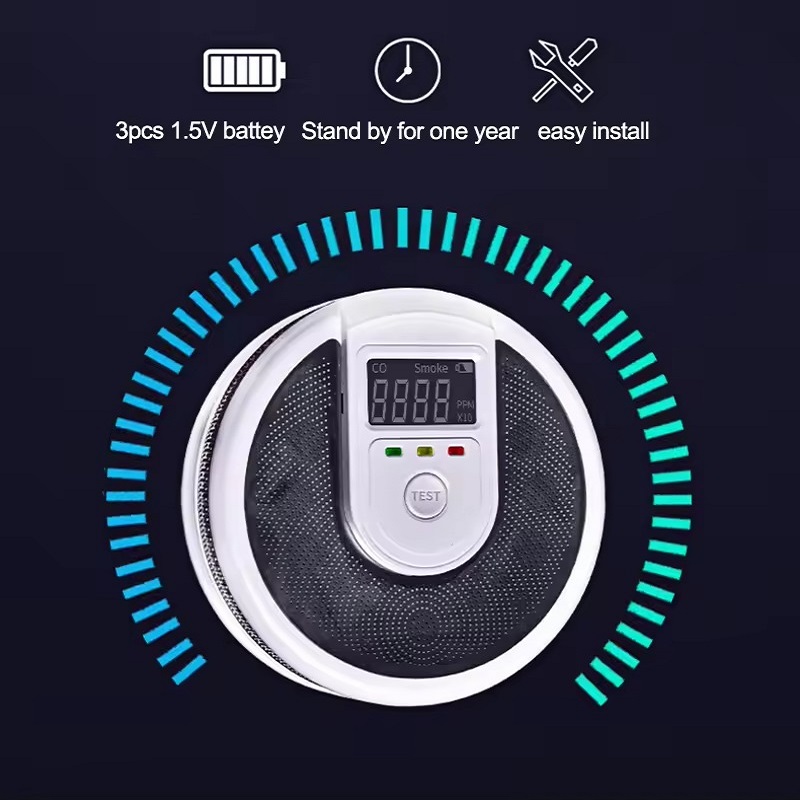
Maintenance Tips to Prevent False Alarms
Regular maintenance of smoke alarms is crucial to ensure they function properly and to prevent false alarms. Here are some tips to help you maintain your smoke detectors and reduce the chances of unexpected activations:
- Test Regularly: Test your smoke alarm monthly by pressing the test button. This confirms the device’s operability.
- Change Batteries: If your smoke alarm uses batteries, replace them at least once a year, or as soon as you hear a low-battery chirp.
- Clean Detectors: Vacuum around your smoke alarms regularly to remove dust and debris. Use a soft brush attachment to avoid damage.
- Avoid Placement Near Vapors: Install smoke alarms away from bathrooms and kitchens to prevent steam and cooking vapors from triggering the alarm.
- Check Location: Ensure smoke alarms are not near windows, doors, or ducts where drafts might cause false alerts.
- Use Protective Covers: If insects are a problem, place a mesh cover over the alarm, but ensure it doesn’t block smoke from entering.
- Inspect for Damage: Look for any signs of damage or malfunction. If an alarm doesn’t sound during testing, replace it immediately.
- Follow Manufacturer’s Instructions: Always adhere to the guidelines provided by the manufacturer for installation and maintenance.
By following these simple steps, you can help reduce the likelihood of your smoke alarm going off without cause and maintain peace of mind knowing that your alarms will function correctly in the event of a real fire emergency. Regular checks and proper care can save you from the nuisance of false alarms and keep your home safely monitored for actual fire threats.
